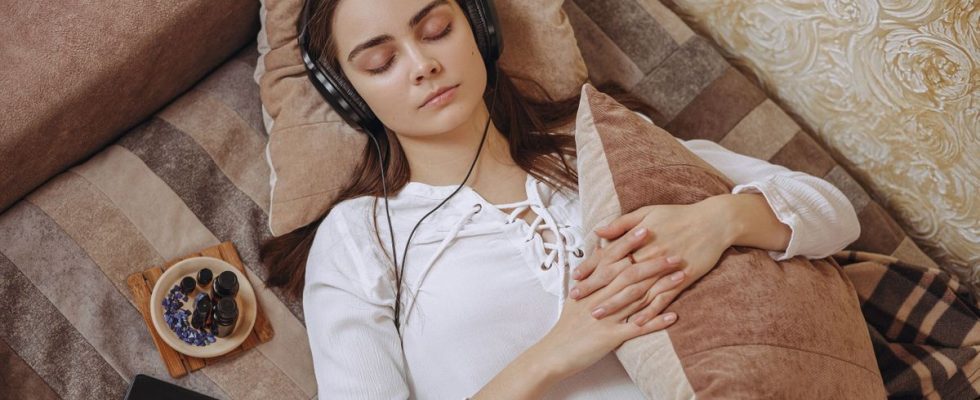Published on
Updated
Reading 2 min.
Want new solutions to remedy sleep disorders? If sleeping pills or herbal medicine are often mentioned, Danish researchers seem to have found a surprising solution to fall asleep more quickly.
A research team affiliated with Aarhus University looked at the effects of music on falling asleep in a study, published in 2023 in the journal PLOS One. Because the fourth art is often a great comfort when we have difficulty falling asleep. People who have difficulty falling into the arms of Morpheus often have the reflex of listening to soothing songs, in the hope that it will lull them. But researchers say many musical styles can improve sleep quality, while helping to calm brain activity.
To reach this conclusion, researchers analyzed a thousand Spotify playlists around sleep, including 130,150 different songs. Among them are many acoustic instrumental pieces, slow and calm, but also much more rhythmic titles. Scientists say that a catchy song can make it easier for some people to fall asleep if it is familiar to them. Indeed, repeated listening allows the brain to anticipate what comes next, which produces an effect similar to that of a slower song without much rhythmic variation.
While surveys claim that music lovers favor classical music for deep, restorative sleep, the Aarhus University research team found that K-pop is also a popular choice. And more particularly “Dynamite” by the boy band phenomenon BTS. This track appears in 245 playlists analyzed, making it the most popular song for Spotify users to get to sleep. “Lovely” by Billie Eilish and Khalid, “Berceuse” by Brahms, “Sonata au Clair de lune” by Beethoven, “Clair de lune” by Debussy and the nursery rhyme “Twinkle Twinkle Little Star” are also among the favorite titles to listen to. fall asleep.
However, researchers cannot say with certainty whether the songs mentioned above improve sleep quality or actually help listeners fall asleep more quickly. “The listener’s motivation could have a big influence on the type of music they choose to listen to before bed. Future research should examine the extent to which different reasons for using music as a sleep aid may influence the choice of a particular piece“, they write in their study.
This work remains far from determining the exact role of music in falling asleep. Scientists from Baylor University say in a study, published in 2021 in the journal Psychological Science, that familiar, repetitive music can trigger “involuntary musical imagery” that degrades sleep quality, even if it seems relaxing. The mystery therefore remains complete.
